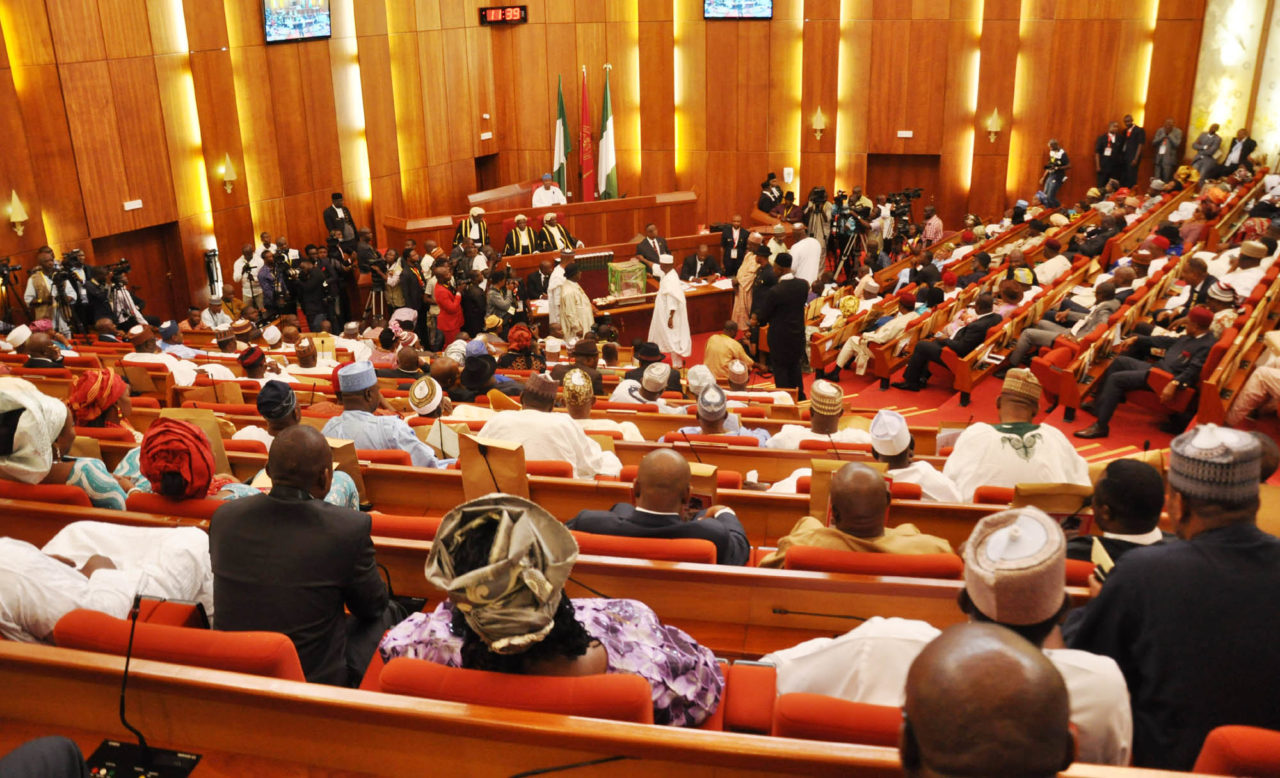
• Reps seek 40 per cent vote for capital projects
Disturbed by the N250 billion loss to cybercrime in 2017, the Senate yesterday urged the Federal Government to improve budgetary provisions for digital technology and cyber-dependence safety.
The upper legislative chamber therefore mandated its Committee on ICT and Cybercrime to engage stakeholders on the menace and chart path for the future of the country.
It also directed the Committee on ICT and Cybercrime to strategically relate with the ministries, departments and agencies (MDAs) to ascertain their ICT shortfalls, cyber security constraints, data management challenges and possible remediation measures.
The resolutions followed a motion on the “Growth of digital technology and the challenge of cybercrime: The urgent need to safeguard the future of Nigeria” sponsored by Yakubu Oceini (Kogi Central).He had noted that Nigeria lost $649 million (over N250 billion) to cybercrime activities in 2017 alone, adding: “The 2018 Nigeria Deposit Insurance Cooperation (NDIC) report indicates that there were 37,817 reported fraud cases within the year, out of which 59.2 per cent were internet and technology-based, costing businesses in Nigeria several billions of naira.”
Oceini went on: “It is also indicated that over 81 per cent of cyber security incidents in the country are either unreported or unresolved, leaving room for the proliferation and escalation of illicit cyber activities.
“In fact, the recent apprehension of 77 cyber criminals by the FBI, several of whom are Nigerians, leaves much to worry about.”
The lawmaker, however, acknowledged that the growth of digital technology, also referred to as ICT revolution, had brought about improved performance in all aspects of the society.He feared that the merits of digital technology were being eroded by the growing cyber-security threats manifest in the increased attacks on persons and enterprises.
The senator added: “Reports indicate that there is currently a dramatic rise in cybercrime such as the ransomeware epidemic, the refocusing of malware from personal computers (PCs) and laptops to smartphones and mobile devices.Others, he said, include the deployment of billions of underprotected Internet of Things (ioT) devices, the legion of hackers-for-hire and more sophisticated launching of attacks on governments, businesses, educational establishments and defence infrastructure.
He expressed worry that the nefarious activities had cost the world trillions of dollars in recent times.Besides, the House of Representatives has deliberated on a bill geared at ensuring that at least 40 per cent of the nation’s yearly budget is earmarked for capital projects in the next 10 years.
Sponsored by Speaker Femi Gbajabiamila, the piece of legislation, which scaled second reading yesterday, was referred to the committees on Appropriation and Finance for further legislative scrutiny.
The five-section bill seeks to create some forms of monitoring process to ensure implementation and enforcement by providing that upon commencement, the Accountant General of the Federation “shall submit quarterly reports to the National Assembly on the performance of the capital budget (s) and must be submitted within two weeks after the end of a corresponding quarter.”The Minority leader, Ndudi Elumelu, who led debate on the document titled “Economy Stimulus Bill”, maintained that there was need for stringent punitive measures against defaulters in the face of the infrastructure deficit in the country.
In this article:
